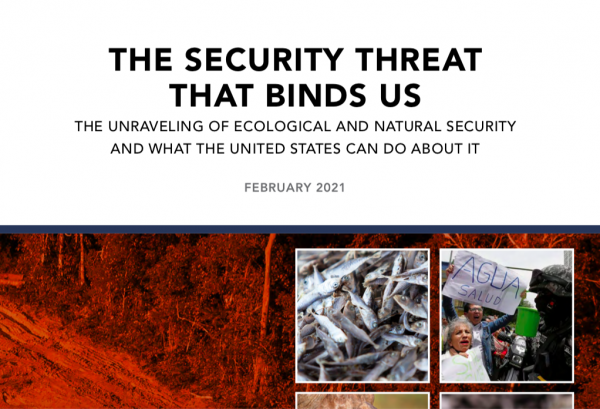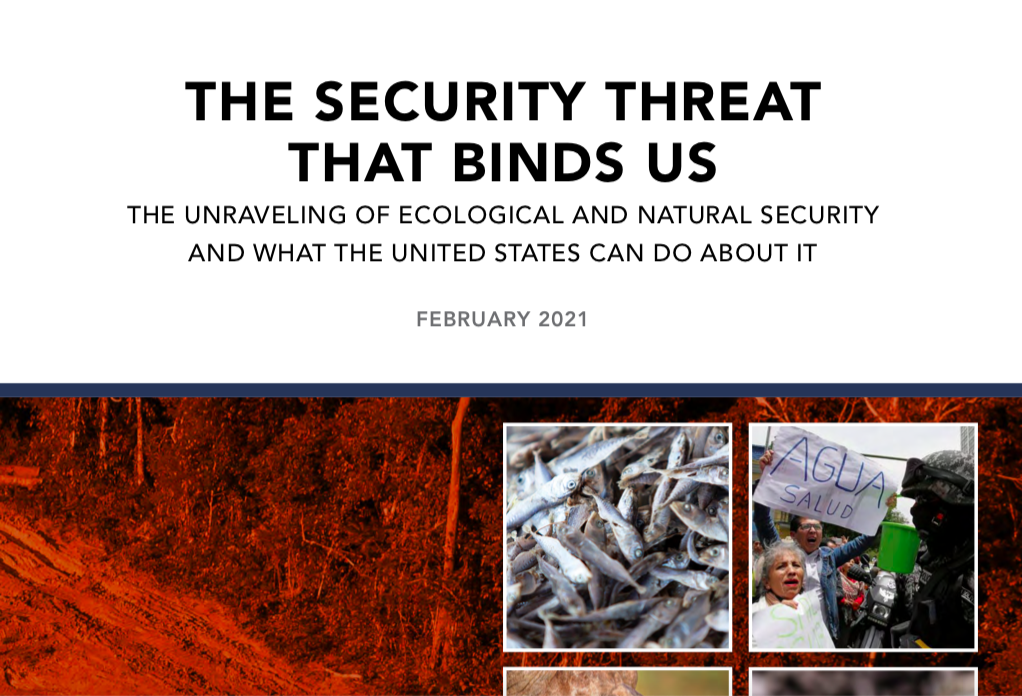International Water Security, US National Security
US Report Raises Urgent Concerns About Water Conflicts
12 Mar 2021 by The Water Diplomat
WASHINGTON DC, United States


A new report calls for international water security issues to be elevated within US foreign policy and national security activities as part of a wider case for rebooting US national security architecture and doctrine in response to unravelling ecological and natural security.
Published 9 February by the Converging Risks Lab of the Council on Strategic Risks and funded in part by the Natural Security Campaign, the report entitled “The Security Threat That Binds Us: The Unraveling of Ecological and Natural Security and What the United States Can Do About It” focuses on the security implications of large-scale environmental destabilisation and offers recommendations for action on the part of the executive and legislative parts of the United States Government.
The report identifies water stress as a major threat for much of the world’s population and raises urgent concerns about the increase in water conflicts, asserting that inadequate government action “can contribute to political instability, social disruption and state instability and conflict, while serving as an impetus or accelerant for human migration and population displacement”, pointing at the same time to the “weaponising of water” by some insurgent groups.
In defining policy recommendations, the report’s authors relied upon three fundamental precepts: that centralised action was necessary to achieve the necessary scale, that science and scientific expertise is critical to the response and that the US government must “rethink which federal agencies get a seat at the national security table, which could help offset the tendency of the United States to view national security through a narrow defense or military lens”.
John Conger, Director of the Center for Climate and Security, Chair of the Climate and Security Advisory Group (CSAG), Senior US Advisor to the International Military Council on Climate and Security (IMCCS), and Former Principal Deputy Under Secretary of Defense at the US Department of Defense, said: “Since the emergence of COVID and the new focus that has been placed on non-nation-state security threats, few reports have made me think so deeply about the complex web of policy issues upon which our own national interests depend. Climate change is a piece of this story, but the authors illustrate the broader ecological narrative in a way that is both compelling and illuminating.”
